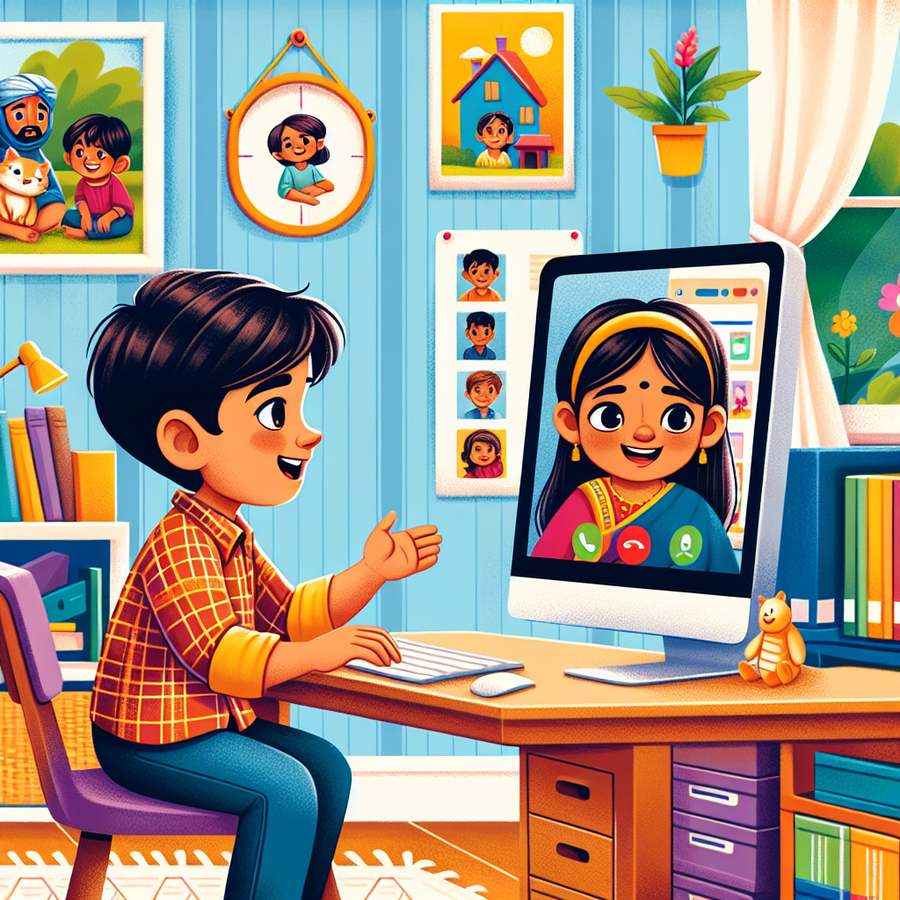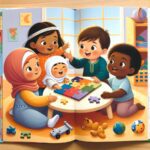In recent times, ‘Socialization in the era of social distancing: Tips for young children’ has become a critical issue for parents and guardians worldwide. As the world navigates through the challenges of social distancing, the need for maintaining social interactions, especially for young children, has significantly increased. This article provides an in-depth look at how to ensure your child remains socially active and develops essential interpersonal skills during these unprecedented times.
Understanding the Importance of Socialization for Young Children
Socialization is a crucial aspect of childhood development, impacting children’s emotional health, cognitive growth, and overall well-being. During the early years, children learn how to interact with others, understand social norms, and develop empathy. Unfortunately, the current era of social distancing poses a unique challenge to this critical development phase. However, understanding the importance of socialization can guide parents in finding innovative ways to address these challenges.
Various studies have highlighted the long-term benefits of proper socialization, including improved academic performance, better emotional regulation, and higher self-esteem. Thus, finding ways to foster social interactions, even in a restricted environment, is paramount. Parents and caregivers can turn to digital platforms, outdoor activities with safety measures, and household projects to keep the social development journey on track. Resources such as the Understanding and Promoting Gross Motor Skill Development in Toddlers can also offer insights into integrating physical and social learning.
Socialization in the era of social distancing: Tips for young children
Adapting to social distancing does not mean isolation. There are multiple ways to ensure that young children continue to engage in meaningful social interactions. Firstly, virtual playdates have become a popular means of maintaining friendships. Platforms like Zoom or Skype can facilitate face-to-face interactions where children can play games, read stories, or simply chat with their peers.
Furthermore, parents can organize small, safe outdoor gatherings, following public health guidelines. Activities such as picnics in spacious parks allow for physical distancing while letting children play and interact. Engaging in family projects can also simulate social environments; for example, building a birdhouse or planting a garden can teach teamwork and cooperation. Incorporating activities from resources like Activities to Promote Empathy and Social Understanding in Toddlers can provide additional benefits in nurturing emotional intelligence.
Creating a Supportive Home Environment for Social Development
While external social interactions are important, creating a supportive home environment plays a crucial role in a child’s social development. Parents and caregivers can foster a sense of security and belonging by regularly engaging in open conversations, showing empathy towards their child’s feelings, and encouraging expression through art, music, and play. Resources like Building a Reading Routine for Language and Emotional Development highlight how routine activities can be turned into opportunities for social and emotional learning.
Moreover, modeling positive social interactions within the family can teach children about respect, kindness, and understanding different perspectives. Activities that involve role-playing or storytelling can be particularly effective. Implementing ideas from Encouraging Problem-Solving Skills in Early Childhood can also help children learn how to navigate social situations and conflicts.
In conclusion, ‘Socialization in the era of social distancing: Tips for young children’ is a multifaceted challenge that requires creative solutions. By leveraging technology, organizing safe in-person activities, and fostering a supportive home environment, parents can ensure their children continue to develop the social skills necessary for a healthy, happy life. Remember, the goal is to adapt and overcome, turning the challenges of today into the strengths of tomorrow.
For more insights and tips on nurturing your child’s development, explore our extensive library at Baby Whys and Hows.













